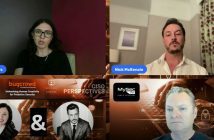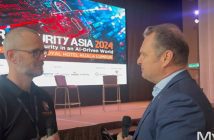
By Dr David Cook
Cyber-attacks can come from anywhere, and it seems that cyber warriors can also emerge from unexpected quarters. The newest weapon in organisations’ defences turns out to be people on the autism spectrum, whose special talents make them ideally suited to the role of cyber warrior.
The characteristics that distinguish people on the spectrum include scrupulous honesty, a passion for problem-solving, superior talent at spotting patterns, and exceptional focus on pursuing anomalies until they are resolved. They are relentless in detecting incongruities and repairing code, refusing to stop until a solution is found.
As a result of their pursuit of logical outcomes, people with high-functioning autism spectrum disorder (ASD) tend to demonstrate outstanding dedication to software objectives and are very unlikely to misrepresent or distort the truth. These gifts also make them highly suited to software testing, another key area of the IT industry.
Neurodiversity is fast becoming a specialised category of ICT employment with a much higher rating in terms of expected benefits and efficiencies, despite past stereotypes that pigeon-holed ASD candidates as too difficult. The emerging view is now more accepting towards quirks and peculiarities, and those with high functioning ASD are receiving greater attention than before. The new language is not so much about “challenges” and “difficulties”. Clever human resources planners now talk about the new “different” in ICT employment opportunities.
Roles connected with IT, assurance and data analytics may appeal to people on the spectrum because they feel more comfortable interacting with machines than dealing with people, especially face to face. This can be a welcome relief for this group of people, who may have difficulties dealing with the unwritten rules of personal discussions and social structures.
As well, interactions within the computing domain usually require logical engagement with systems, programs and platforms, and provide specific work objectives, clear guidelines and relatively rigid protocols for completing tasks, which suit many people on the spectrum.
As Harvard Business Review reports, savvy organisations are catching on to the fact that people with high-functioning ASD offer a competitive advantage. The federal Department of Human Services has found that people with autism in software-testing roles are 30 per cent more productive than their neurotypical colleagues.
Some trailblazers are implementing neurodiversity programs with the specific goal of attracting people with on the spectrum. Both the Department of Foreign Affairs and Trade and the Department of Defence have introduced neurodiversity programs in the technology field. ANZ Bank has a “Spectrum Program” , and comparable programs have been established at both the Commonwealth Bank and Westpac.
National Australia Bank too partnered with DXC Technology’s Dandelion program in 2019 to establish a program called Neurodiversity at NAB. It reports that the results were “outstanding”, with the bank finding that after three months the DXC Dandelion team’s productivity was 26 per cent higher than the existing team’s output. One ASD trainee at NAB scripted a new program within their first couple of weeks that “effectively saved the bank hundreds of hours”.
Yet much more can be done by the corporate world to take advantage of the talents people with autism spectrum disorder have to offer. According to the Australian Bureau of Statistics, there were 205,200 Australians with ASD in 2018. Yet only about 40 per cent of working-age people with ASD participated in the workforce in 2015.
The reasons for this may have nothing to do with ability. Research by autism advocacy group Amaze has found that about one-third of people on the autism spectrum are unable to attend job interviews due to anxiety. Even if they are able to attend, many struggle in interviews because they don’t have the communication skills needed to sell themselves to potential employers.
This is more than a needless waste of human potential. For corporations, it is a missed opportunity with serious – and expensive – consequences. The growing threat of cyberattacks, cyber espionage and even cyberterrorism means that organisations must constantly upgrade their defences and if they are attacked, they may have to spend huge amounts of money to cyber criminals demanding ransoms or upgrading their systems.
This is where people on the spectrum come in to their own. As a result, the IT industry is an exception to the pattern of poor employment outcomes. People with ASD working in IT find jobs more often, enjoy higher levels of job satisfaction and stay in their roles for long periods of time, offering employers a loyal and dependable workforce in a rapidly shifting industry.
The rise of online learning is also proving to be a boon for both workers with ASD and their employers. People on the spectrum engage successfully with this learning mode because it removes the anxiety often associated with face-to-face interactions and provides certainty and clarity around tasks.
As a result, people with ASD are more likely to actively engage with online courses such as a Master of Cyber Security or Master of Computer Science than with in-person alternatives. Such high-level qualifications can be hugely beneficial, as they greatly expand opportunities both for finding and keeping a job and for enjoying the satisfaction and potentially higher salary that come with it.
The message is clear: when organisations hire people on the autism spectrum, the benefits are mutual. The solution is also within easy reach: more and more corporations can share their experiences on how to implement a neurodiversity program. In the current environment of labour shortages and skill deficits, neither employers nor employees can afford to let so much potential go untapped.
Dr David Cook is a lecturer within the School of Science and unit coordinator of the Information Warfare unit for ECU’s Accelerated Online Master of Cyber Security, a member of the Australian Centre for Cyber Security Excellence (ACCSE), and a Fellow of the Australian Computer Society.





